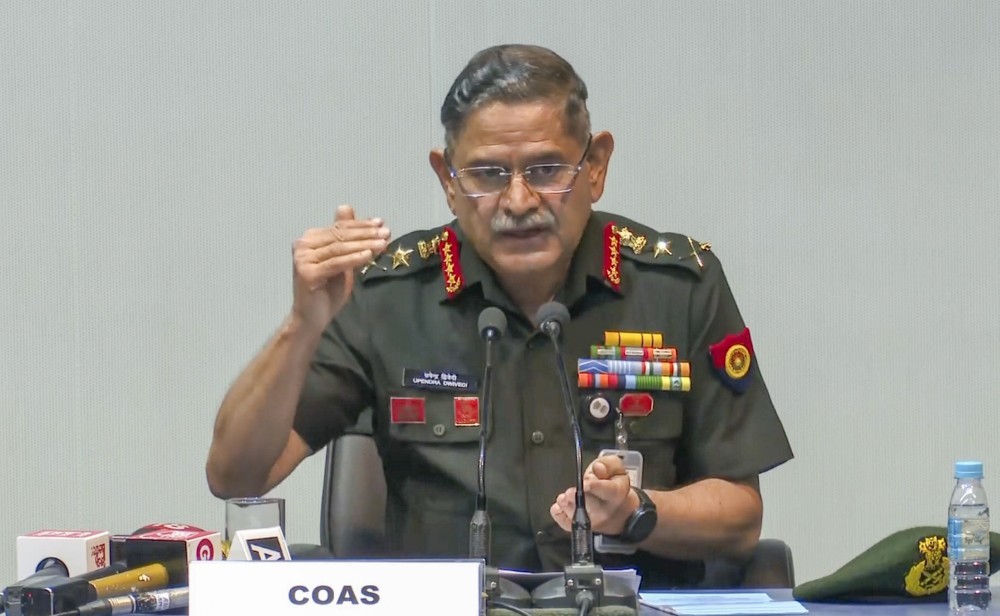
Chief of the Army Staff General Upendra Dwivedi during an interactive session in New Delhi on Tuesday. (Photo: PTI)
NEW DELHI (PTI): India will look at disengagement and de-escalation of the situation along the Line of Actual Control (LAC) in eastern Ladakh after restoration of the status quo of April 2020, Army Chief Gen Upendra Dwivedi said on Tuesday, a day after New Delhi announced striking an agreement with Beijing to end the over four-year border row in the region.
In his first comment on the pact on patrolling along the contested frontier, Gen Dwivedi said the Indian military is trying to restore "trust" and both sides will have to "reassure each other" to achieve this objective.
Foreign Secretary Vikram Misri on Monday announced India and China reached an agreement on patrolling along the LAC in eastern Ladakh, in a major breakthrough in ending the over four-year military standoff.
The announcement came ahead of a meeting between Prime Minister Narendra Modi and Chinese President Xi Jinping in the Russian city of Kazan on Wednesday on the sidelines of the BRICS summit.
"As far as we are concerned, we want to go back to the status quo of April 2020. Thereafter, we will be looking at disengagement, de-escalation and normal management of the LAC," he said at an interactive session.
"And, this normal management of the LAC will not just stop there. There are phases in that also," he added.
In almost all the negotiations with China on the border row, India has been insisting on restoration of the status quo ante of that existed before the border standoff erupted in early May of 2020.
"This is what I am saying. This has been our stance since then and even today (it) remains the same.
So, as of now, we are trying to restore the trust," the Army Chief said.
"How trust will be restored. It will get restored once we are able to see each other, and we are able to convince each other, look at the buffer zones which are there, which have been created, we are not creeping," he said.
"And, both will have to reassure each other," he said.
The Army Chief said resumption of patrolling would give some kind advantage.
"Patrolling gives you that kind of advantage and that is what is commencing. And, as we restore the trust, the other stages will follow through soon," he said.
Meanwhile, China on Tuesday confirmed that it has reached an agreement with India to end the standoff between the two armies in eastern Ladakh.
"Over a recent period of time, China and India have kept close communication through diplomatic and military channels on issues related to the China-India border," Chinese Foreign Ministry spokesman Lin Jian said in Beijing.
The ties between the two Asian giants nosedived significantly following the fierce clash in the Galwan Valley in June 2020 that marked the most serious military conflict between the two sides in decades.
The two sides disengaged from a number of friction points following a series of military and diplomatic talks in the last couple of years.
However, the talks hit hurdles in resolving the situation in Depsang and Demchok.
It is understood that the agreement announced on Monday will facilitate patrolling in Depsang and Demchok areas.
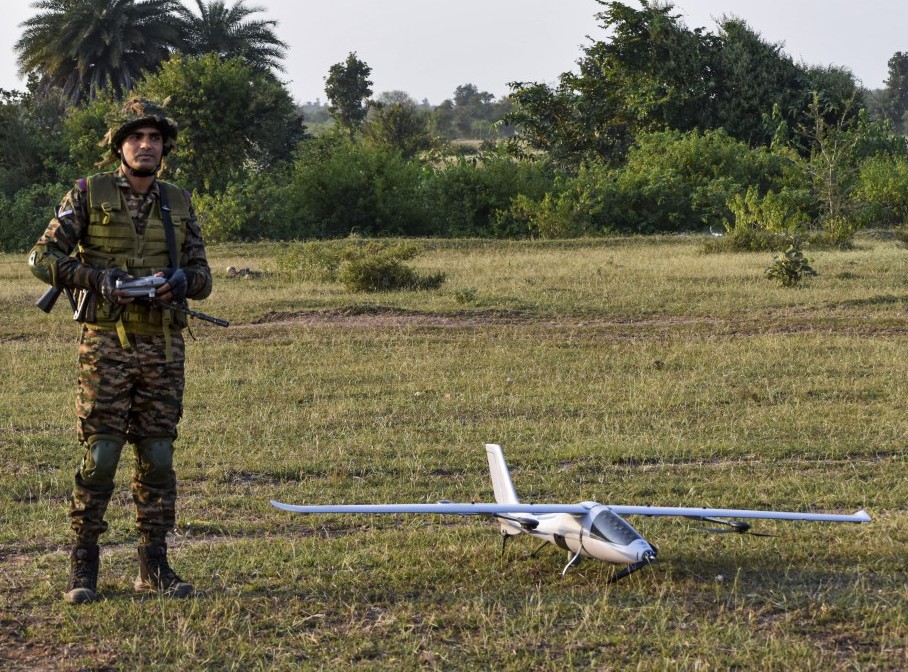 Previous Article
Previous Article Next Article
Next Article





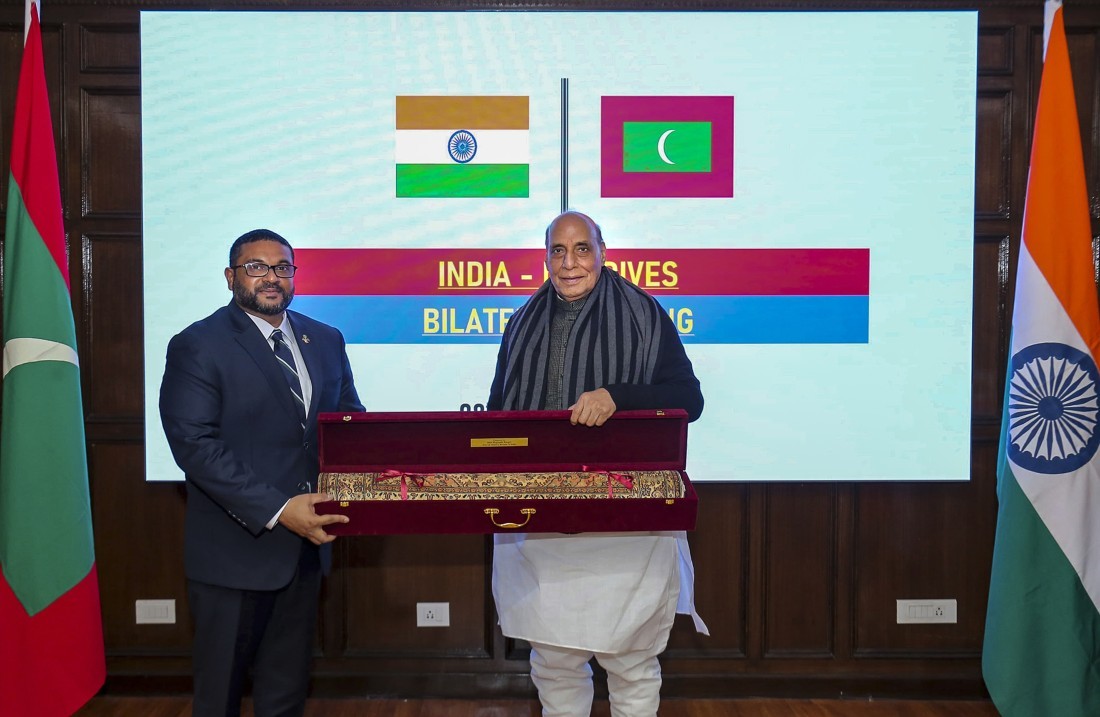
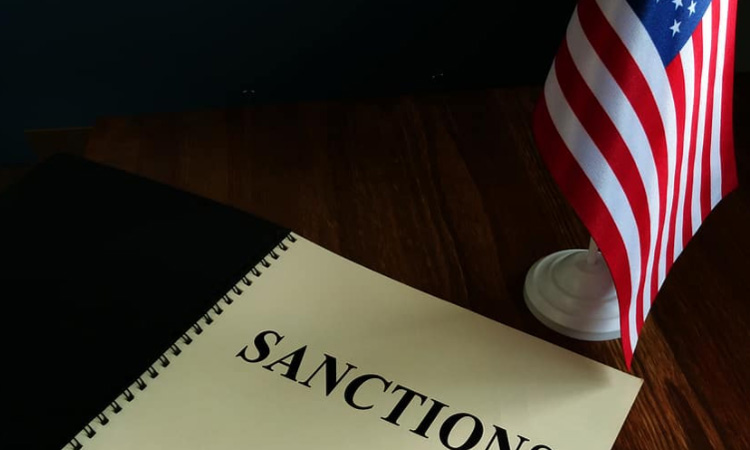
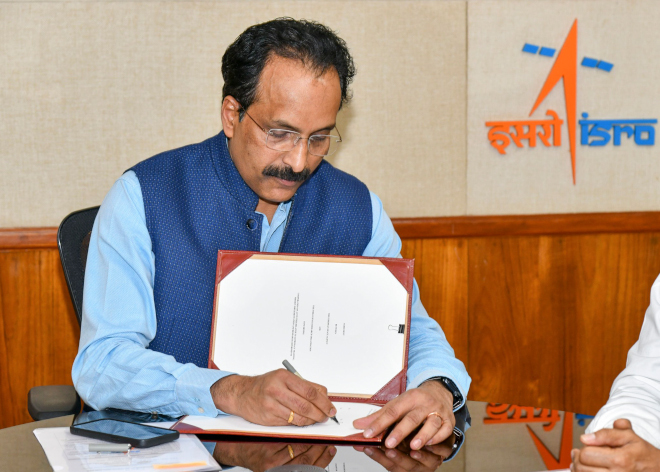





The Indian Air Force, in its flight trials evaluation report submitted before the Defence Ministry l..
view articleAn insight into the Medium Multi-Role Combat Aircraft competition...
view articleSky enthusiasts can now spot the International Space Station (ISS) commanded by Indian-American astr..
view article